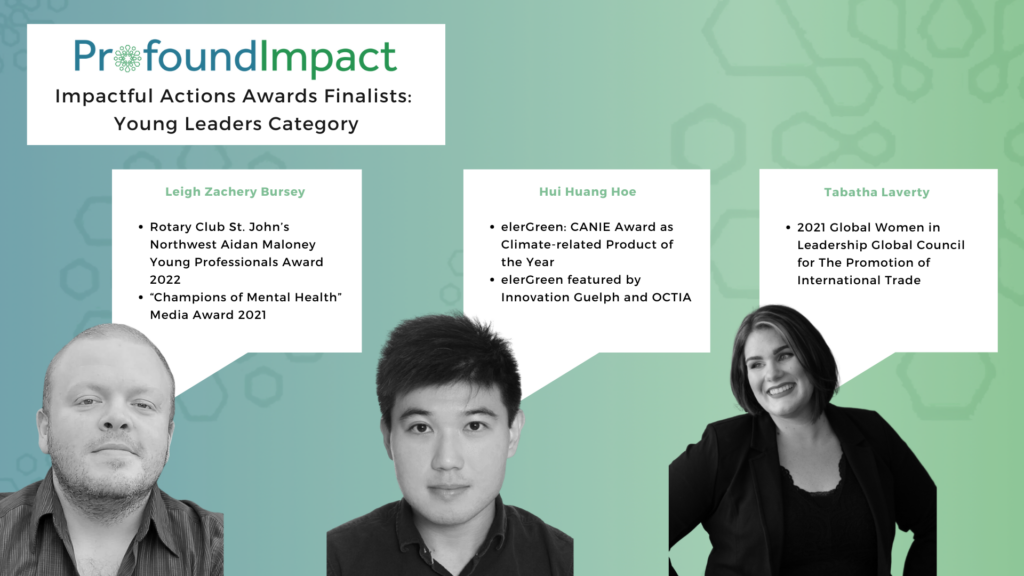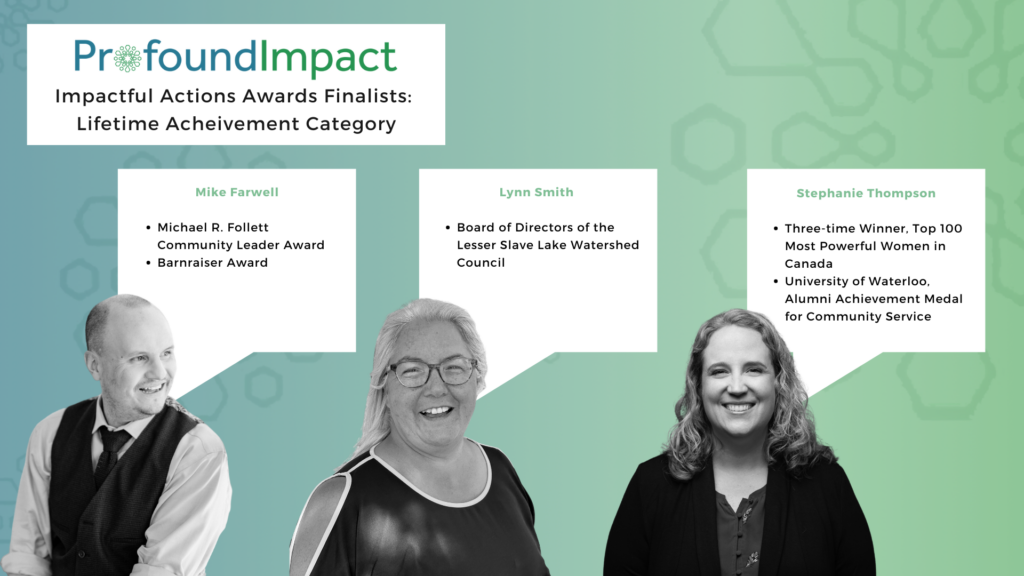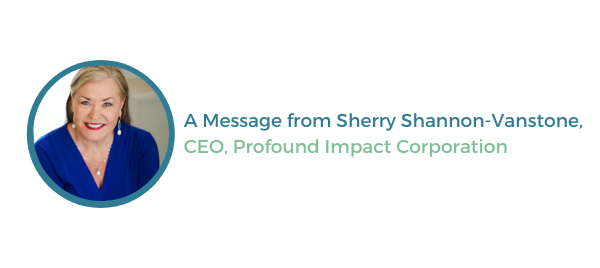Lynn Smith
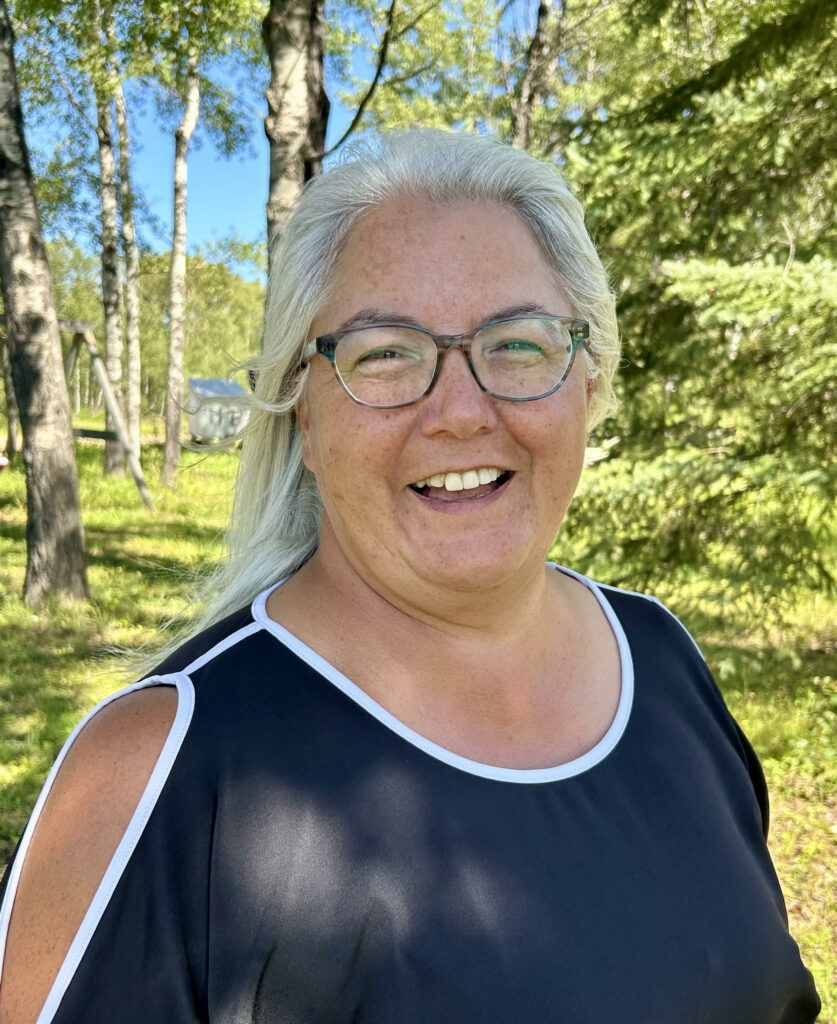
Regional Planning Coordinator
Lifetime Achievement Impactful Actions Award Finalist
Lynn Smith has fond memories of walking through the jack pine forest of the Peavine Métis Settlement in northern Alberta, of which she is a proud member, with her grandmother to pick blueberries and of camping with her family in those same forests. In her current role as Regional Planning Coordinator within the Consultation Department in the Settlement, developed in partnership with NAIT (the Northern Alberta Institute of Technology), she is leading her community through a significant change to take control of monitoring the impact of climate change on their land and waterways.
“Indigenous people have been stewards of the forests and waterways for generations,” notes Lynn. “I am now in a position to make changes to bring things back, as closely as possible, to the way they were when I was a child, when my cousins and I could drink directly from the river and streams in our community.”
Lynn works with compassion and perseverance in collaboration with community members to build knowledge and achieve data sovereignty in order to better hold industry and all levels of government accountable for how their actions impact Indigenous lands. She has developed an environmental monitoring program managed by a team of community-based environmental monitors and data technicians that deliver real benefits to the Settlement. This mentoring model ensures that the skills of those monitors and technicians are retained within the community.
Lynn regularly initiates, enables and sustains collaborations with a broad range of stakeholders, including Elders, traditional hunters and fishers, NAIT staff and students, all levels of government, and companies from the energy, forestry, and environmental consulting sectors. She reaches out to people and organizations with different experiences and expertise and enables her team to weigh in on decisions to achieve her community’s goals – all while demonstrating her compassion and strong interpersonal connections.
Although Indigenous peoples own, occupy, or use about a quarter of the world’s surface, they safeguard 80% of the world’s biodiversity. Attempts in the past by those communities to set up environmental monitoring programs have suffered from a lack of knowledge, thereby hindering the development, sustainability, quality and viability of the programs. Lynn has developed innovative partnerships between the Indigenous community and Western scientists, to teach Indigenous ways of knowing and to share Western-based methods of doing science with professionals who create environmental monitoring programs in her community. Lynn is also breaking new ground by communicating her learnings in setting up environmental monitoring programs to the scientific community by participating in the upcoming Chemical Society of Canada conference – a first for a non-traditionally trained scientist.
The sharing of knowledge and learnings with other Indigenous communities suffering from similar environmental challenges is a vital element of Lynn’s work. She works with communities to build competencies in their consultation teams to autonomously monitor their land, generate and interpret data, and implement management programs.
Lynn has been recognized for her achievements by being asked to represent her community on the Board of Directors of the Lesser Slave Lake Watershed Council, which works to improve and maintain a healthy watershed through education, planning and implementation of shared initiatives supporting communities and ecosystems throughout the region.
Lynn is mother to three young adult children and, when not working for the Settlement, owns and operates, along with her husband, Jesse Smith, three businesses: P’J’s Eavestroughing, Lynn and Jesse Grain Farm and D’Vine Trap Range. The trap range evolved from her love of the sport of trap shooting, where she was named the 2019 Canadian Ladies Champion. She is currently and has been, for the last 5 years, the reigning Alberta Provincial Ladies Champion.
“I’ve never thought of myself as a pioneer,” says Lynn about her work. “This is the best job I’ve ever had!”
Profound Impact is delighted to showcase Lynn’s important work and its incredible impact on the Peavine Métis Settlement and across Indigenous communities.
You can see more about Lynn’s career and impact in the visualization below.
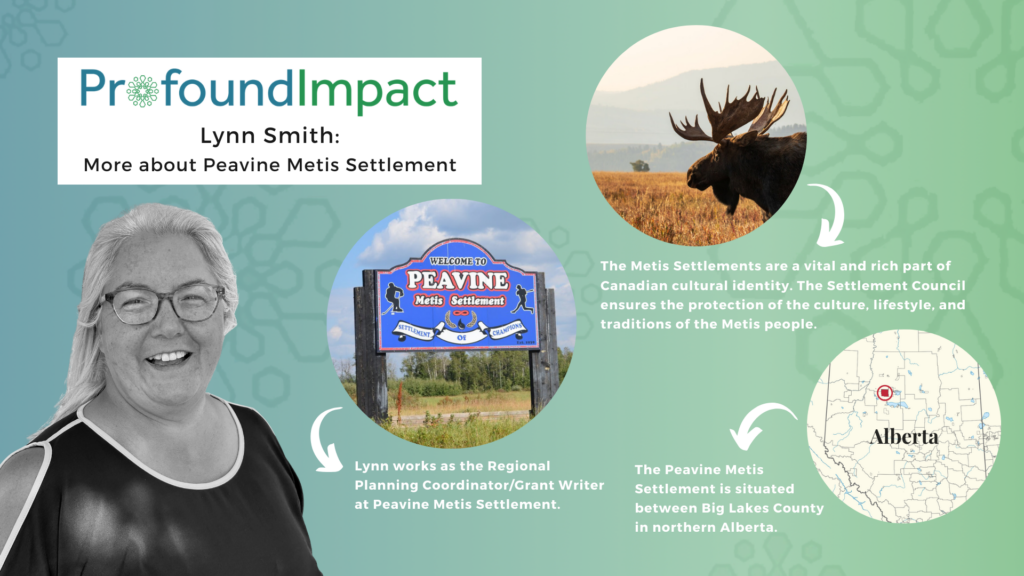
Do you have an impact story to share? Let us know at connections@profoundimpact.com for a chance to be featured in an upcoming newsletter!
